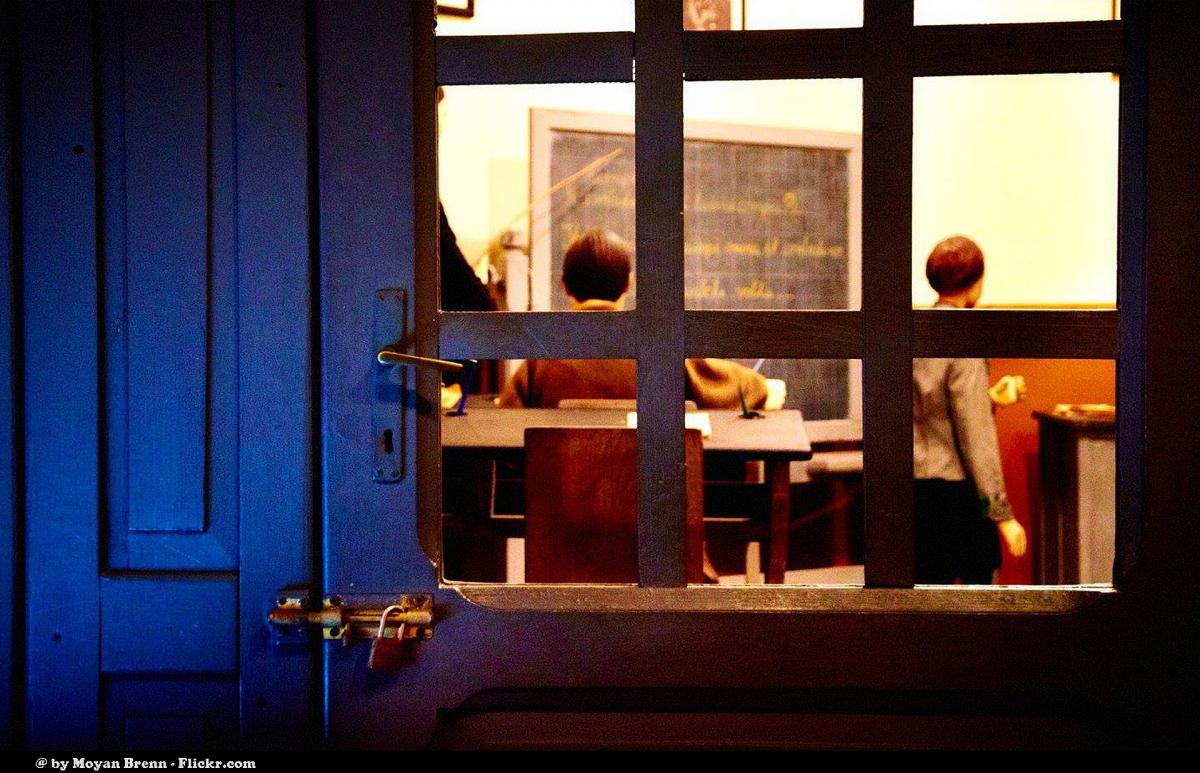
Image by Moyan Brenn, http://www.travelbusy.com/gallery/
In my job, I hear from educators every day about challenges they experience when teaching about both climate change and evolution. A parent yelling at them for teaching “politics” when they’re trying to teach about climate change; a student pushing back against evolution when it’s taught; an administrator encouraging the teacher to just “skip over” the topics altogether to avoid “controversy”.
Teachers wanting to ensure the integrity of their lessons often ask me for tips on how to politely and professionally respond to challenges without ruffling feathers and creating permanent rifts. One such teacher, A.K., a high school biology teacher in Pennsylvania, didn’t come seeking advice from NCSE at first, but when he relayed his experiences to me recently, I knew I wanted to share them with others who might be in a similar situation. What follows is the story of how A.K and his colleagues fought back when challenged by a school board member regarding their teaching of climate change.
It all started when a textbook that addressed climate change was being considered for adoption. One school board member in particular was immediately against it and wrote a letter to the editor of the local newspaper challenging the book’s use. The teachers were dumbfounded—their science teaching had never been questioned so publically before. Moreover, this was a tiny community where people were friendly with one another. How could they respond to this school board member without it spilling over and affecting all of their relationships within their small community?
A.K. and his colleagues started drafting a letter to the school board in support of the book and teaching climate change, but they realized that that they were going to need outside support. As a science teacher A.K. knew that his best line of defense was not to get personal, but to get the evidence on his side. So, he took it upon himself to write a series of scientists who studied climate change, including Richard Alley (Penn State), Steven Amstrup (Polar Bears international), Julienne Stroeve (National Snow and Ice Data Center), to ask for help—and to his surprise, they all responded with references and suggestions on how to best draft the letter.
Seeing that the teachers were not rolling over, the school board member then requested to see all of the materials the teachers were using that addressed climate change. This caused quite a bit of anxiety among the teachers, as many were concerned that they might be targeted for covering the topic.
The board member then gave the original textbook and the teaching materials to a local “expert” (a chemical engineer who did not study climate change) to review, and the expert was invited to the school board meeting to present his findings. As you can imagine, his findings did not support the scientific consensus around climate change; rather they challenged nearly every line of the teachers’ curriculum.
The teachers did not give in. Instead, they worked with their administration to reach out to the other school board members. In meetings, they emphasized the value of what they were teaching—not politics or opinions, but the scientific evidence of climate change. It was essential, they argued, that the students learn about it.
Because of the strong network the science teachers built among themselves and with their administration, the rogue school board member did not get the votes he needed. A later attempt to require the teachers to teach "both sides of the controversy” also failed. Crisis averted and science won the day—Go Teachers Go!
What are A.K.’s recommendations to other teachers dealing with these issues?
In a recent conversation with me, A.K. stressed the importance of coming across as calm and professional in building credibility with people in “the middle.” He felt that if they started fighting directly with the school board member or getting nasty or personal, they would have lost the fight and potentially caused a lasting rift in the community. In any community you must be clear about your intensions, he said. It’s not about politics; it’s not about personal agendas; it’s about the science.
For more on how to testify in front of your school board, follow this link: How to Testify at a School Board Meeting.
Do you have a story of dealing with challenges to science education in your community? Get in touch with us at NCSE and share your stories. By building a network of strong educators, we can help others when these challenges arise.

